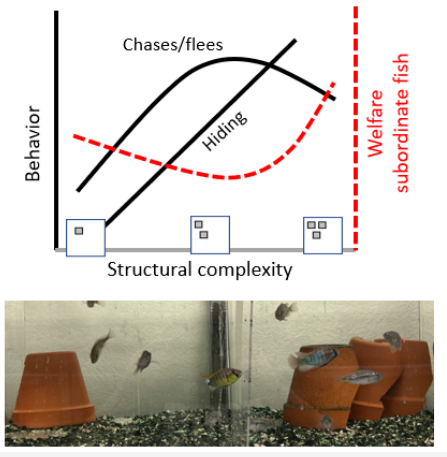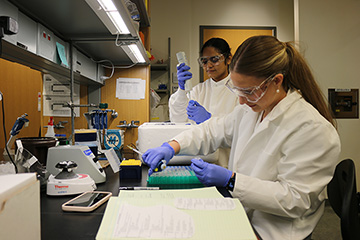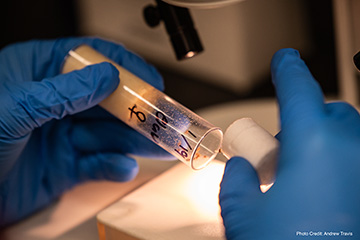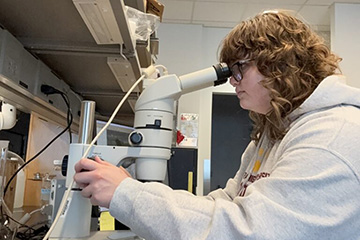CMU student-led research explores fish welfare in the laboratory, earns prestigious grant
Central Michigan University students are making waves in laboratory animal welfare research with a project that investigates how environmental enrichment impacts highly territorial cichlid fish. The research, led by CMU Biology Faculty Member Peter Dijkstra, earned a highly competitive $47,974 grant from the American Association for Laboratory Animal Science (AALAS) Foundations Grants for Laboratory Animal Science (GLAS) program, a rare achievement for studies focusing on non-traditional model organisms like the cichlid fish Astatotilapia burtoni.
“This funding is particularly notable because most grants through this mechanism go to studies involving typical laboratory animals, such as mice or rats,” said Dijkstra. “Securing this award for a fish model highlights the importance and unique approach of our lab in advancing animal welfare science.”

The research addresses a critical trade-off in laboratory animal care: the effects of environmental enrichment on territorial behavior. Enrichment, such as PVC pipes, terracotta pots, or nesting materials, provides shelter for subordinate fish, helping reduce stress and injury. Yet these same resources can trigger aggression, as dominant fish may attempt to monopolize them.
Cichlids are widely used in NIH-funded studies on social behavior and stress, but their aggressive tendencies can jeopardize the welfare of subordinate fish when housed in simple tanks. In this project, student researchers tested varying levels of habitat complexity, using halved terracotta pots to simulate enriched environments, and monitored behavioral and physiological indicators such as reproductive tissue development and testosterone levels.
The study exemplifies collaborative, multi-level research at CMU. Honors College undergraduate Ben VanderKlok, a biology major, designed and conducted the summer experiments, while Ph.D. student Farjana Chamily led data analysis and authored the resulting manuscript. The team also collaborated with Dr. Ronald Oldfield from Case Western Reserve University and his undergraduate student Calvin Ketterl to ensure the study met rigorous standards in fish welfare research.
“Good science depends on good animal welfare,” Dijkstra explained. “If subordinate fish are constantly injured or stressed, the integrity of behavioral and physiological data is compromised. Our goal is to find evidence-based solutions that improve living conditions while maintaining the quality of the science.”
Dr. Jon Kelty, who is chair of CMU's Institutional Animal Care and Use Committee (IACUC), the body responsible for overseeing the humane treatment of research animals, states that developing optimal housing conditions is "critical also from an ethical point of view.”




